By Sharmila Oswal
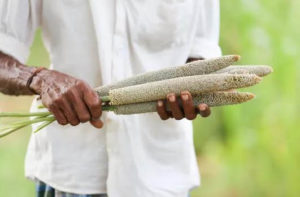 The United Nations has declared 2023 to be the “International Year of Millet” at the initiative of the Indian government. The Department of Agriculture & Farmers Welfare wants to spread millet across the entire world by promoting its larger-scale production and consumption. Millets are a very significant part of Indian agriculture and are the oldest crop known to humankind. One of the earliest crops to be planted was millets. According to studies, millets were consumed during the Indus-Sarasvati civilization (3,300 to 1300 BCE).
The United Nations has declared 2023 to be the “International Year of Millet” at the initiative of the Indian government. The Department of Agriculture & Farmers Welfare wants to spread millet across the entire world by promoting its larger-scale production and consumption. Millets are a very significant part of Indian agriculture and are the oldest crop known to humankind. One of the earliest crops to be planted was millets. According to studies, millets were consumed during the Indus-Sarasvati civilization (3,300 to 1300 BCE).
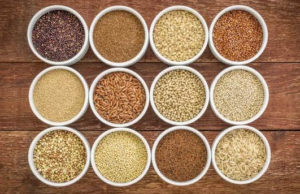 health since they are gluten free and are good for the digestive system as well as protect us from heart diseases. Compared to the other grains, millets are easy to grow and do not require much soil or rain. Millets don’t require as much time and pampering as it is required for rice and wheat.
health since they are gluten free and are good for the digestive system as well as protect us from heart diseases. Compared to the other grains, millets are easy to grow and do not require much soil or rain. Millets don’t require as much time and pampering as it is required for rice and wheat.
Millets are a perfect crop for areas where water management is a concern because they are hardy grains that prosper in semi-arid climates. The majority of cultivars have higher iron contents than both rice and wheat and offer more protein than rice. Despite the long tradition of millet intake in India, between 1972-1973 and 2004-2005, consumption of pearl millet or bajra fell by 67 per cent in urban areas and by 59 percent in rural ones. Another study found that jowar, bajra, maize, and ragi provided 23 per cent of India’s grain needs in 1983 but only 6 percent in 2011.
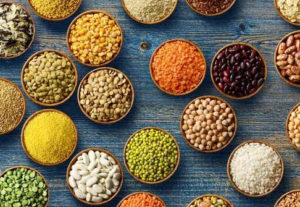 In order to reverse the trend of decreasing millet consumption, India designated 2018 the National Year of Millets in order to encourage the production and consumption of millets or nutri-cereals. Millet’s production climbed from 14.52 million tons in 2015-2016 to 17.96 million tons in 2020-21. The three millets, Jowar, Bajra, and Ragi, are known as neutral, and Brown top, Kodu, Proso, Barnyard, and Foxtail are the positive millets. These five millets are becoming more and more popular because of their incredibly beneficial to the digestive system and can heal chronic conditions like diabetes.Here are some of the reasons behind the millets gaining this much popularity are:
In order to reverse the trend of decreasing millet consumption, India designated 2018 the National Year of Millets in order to encourage the production and consumption of millets or nutri-cereals. Millet’s production climbed from 14.52 million tons in 2015-2016 to 17.96 million tons in 2020-21. The three millets, Jowar, Bajra, and Ragi, are known as neutral, and Brown top, Kodu, Proso, Barnyard, and Foxtail are the positive millets. These five millets are becoming more and more popular because of their incredibly beneficial to the digestive system and can heal chronic conditions like diabetes.Here are some of the reasons behind the millets gaining this much popularity are:
Several health advantages of consuming millets (Superfood)
Millets are high in protein, fiber, essential vitamins, and minerals. They are renowned as a nutritional powerhouse. It aids with immunity, weight reduction, and overall health. Being high in nutrients such as dietary fiber, carbs, protein, and healthy fat, as well as minerals such 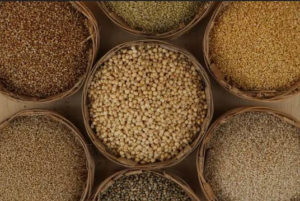 as calcium, iron, manganese, zinc, potassium, and magnesium. Millets also aid in fitness and energy level maintenance because they offer a low-calorie content. Millets have also been shown to alleviate asthma, lessen migraines, and drain out toxins from our bodies, allowing our organs to work optimally.
as calcium, iron, manganese, zinc, potassium, and magnesium. Millets also aid in fitness and energy level maintenance because they offer a low-calorie content. Millets have also been shown to alleviate asthma, lessen migraines, and drain out toxins from our bodies, allowing our organs to work optimally.
Governmental policies to promote millet consumption:
On April 10, 2008, millets were rebranded as “Nutri Cereals,” and 2018 was designated as the National Year of Millets. The worldwide millets market is expected to have a CARG of 4.5 percent between 2021 and 2016. The nodal agricultural ministry said in a statement that the center ministries, state governments, and Indian embassies have been allotted a dedicated month in 2023 to carry out various initiatives to promote IYM and raise awareness about the advantages of millets.The government has scheduled a number of millet-centric promotional events around the country as the International Year of Millets (IYM) begins, while also underlining that millets are a vital component of the G-20 conferences.
Millets play an important role in strengthening farmers.
Millets are one of the simplest crops to cultivate in the field. Because it is a rainfed crop, it 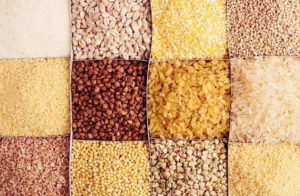 does not require as many fertilizers or as much attention as wheat and rice do. Millets were one of the earliest crops to be cultivated for nourishment. Millets are easy to plant and care for since they require less time to grow, fit a wide range of cropping systems, and have excellent adaptation to changing climatic and environmental conditions.
does not require as many fertilizers or as much attention as wheat and rice do. Millets were one of the earliest crops to be cultivated for nourishment. Millets are easy to plant and care for since they require less time to grow, fit a wide range of cropping systems, and have excellent adaptation to changing climatic and environmental conditions.
Future of millets
Millets are the future of agriculture. Its qualities are good for health, good for cultivation, and beneficial for farmers makes it a potential cultivation crop for agriculture. Since then the groundwater of India has declined by 61 per cent between 2007 and 2017. Thus, it makes millet a perfect crop to be grown because of its low footprint of water and suitable climate requirements. Their potential to be a cash crop and the benefits derived from it can give millets the title of being a future food security of the world. Since millets are making a comeback due to its unique qualities for body as well as cultivation, it has now started to be known among the locals too. It has always been superior in nutrients and proteins and there are initiatives taken by the government in order tomain millets a mainstream crop again. A balanced life can be achieved if the crop is included in our daily consumption. (IANSlife)
(Sharmila Oswal, Founder & MD of Gudmom by 1Organic & Millet Evangelist)



